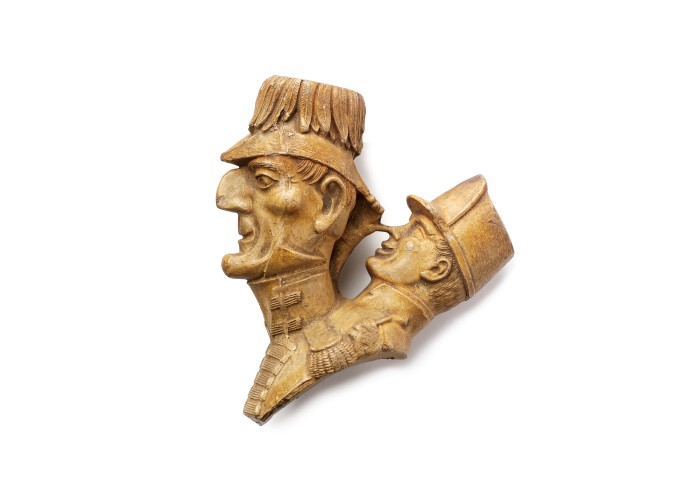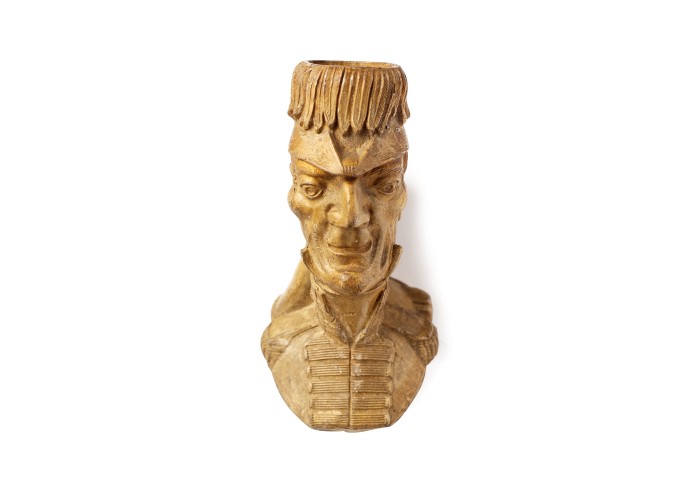Pipe Head Mocking Duke of Wellington
This is the clay head of a French pipe, found on the battlefield of Waterloo. The front of the pipe is an unflattering caricature of the Duke of Wellington, with a bowl in his cockaded hat to hold the burning tobacco. The stem of the pipe is carved into a depiction of a French soldier, disrespectfully thumbing his nose at the Duke – perhaps this is the face of the Frenchman who made this mocking piece of personal propaganda.
At the time of the Napoleonic Wars, political satire and caricatures of political and military leaders became extremely popular across Europe – often showing the elite in ridiculous situations, full of insulting or sexual references. In a time of wars and revolutions, these depictions gave ordinary soldiers and civilians a way of understanding the world and expressing their voices. Buying or making political items like this pipe gave ordinary people the feeling that they were taking a side in these momentous events.
Wellington’s craggy features and large nose are particularly exaggerated, mimicking his popular nickname of “Nosey”. The soldier’s thumbing his nose behind Wellington’s back is a traditional gesture of disrespect, known at the time as “cocking a snook” at someone.
At the time of the Battle of Waterloo, Wellington was the most famous soldier in the British Army, having fought a long and successful campaign against the French in the Spanish Peninsular. He was less well-known in France, but was still notorious enough to be the target of satire and derision, from all quarters of society. Napoleon, who had never faced the Duke of Wellington in battle before Waterloo, was inclined to insult his adversary – possibly in order to inspire confidence among the French commanders. Napoleon called Wellington “the sepoy general”, referring to the latter’s service in India, and supposedly declared that beating the Allies would be “as easy as eating breakfast” on the morning of the Battle of Waterloo.
This pipe would have had a longer wooden stem, which has rotted away. Smoking tobacco was extremely popular among soldiers, for comfort, warmth and to suppress hunger. The health risks of tobacco were not yet understood, and smoking was thought to be good for the nervous system and strengthening to the lungs. One British Captain, Robert Percival, claimed that his men stayed healthy “by drinking strong arrack [alcohol] and smoking tobacco.”
-
Curatorial info
- Originating Museum: Apsley House
- Accession Number: M 4 (c)
- Material: Clay
- Creation Place: Paris?
-
Use this image
You can download and use the high resolution image for use in a non-profit environment such as a school or college, but please take note of the license type and rights holder information below
- Rights Holder: Copyright Apsley House / English Heritage. Photography Relic Imaging Ltd.
- License Type: Creative Commons
Find it here
This object is in the collection of Apsley House – English Heritage








